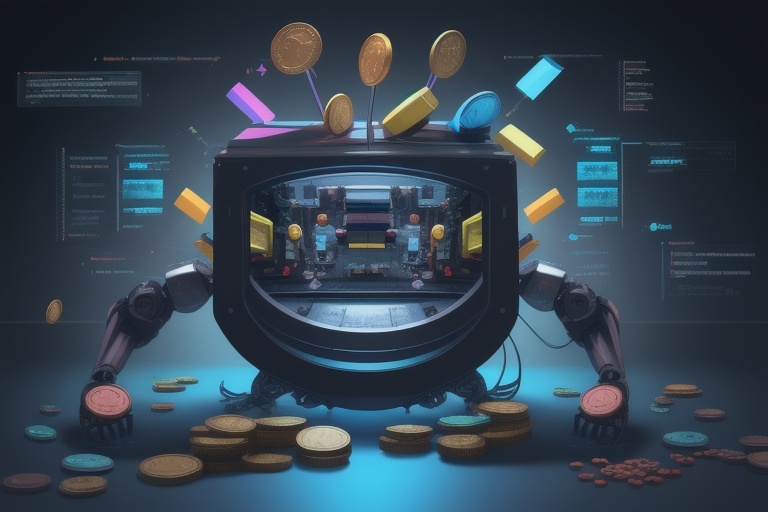Artificial Intelligence today is at the forefront of innovation, sparking curiosity and lively discussion across diverse fields. It’s an intricate tapestry of technologies that are rapidly transforming industries and our daily lives. The question of which artificial intelligence system holds the title of "smartest" inherently invites debate as it homes in on the broader contemplation of what constitutes intelligence. This inquiry cannot be encapsulated by a single answer, as AI intelligence can be multifaceted and context-dependent. Nonetheless, we can survey some of the most advanced AI systems of our time and examine their unique features and capabilities. Among these technological marvels, GPT-3, AlphaZero, IBM Watson, and Tesla Autopilot shine as leading examples of AI sophistication.
Artificial Intelligence today is at the forefront of innovation, sparking curiosity and lively discussion across diverse fields. It’s an intricate tapestry of technologies that are rapidly transforming industries and our daily lives. The question of which artificial intelligence system holds the title of "smartest" inherently invites debate as it homes in on the broader contemplation of what constitutes intelligence. This inquiry cannot be encapsulated by a single answer, as AI intelligence can be multifaceted and context-dependent. Nonetheless, we can survey some of the most advanced AI systems of our time and examine their unique features and capabilities. Among these technological marvels, GPT-3, AlphaZero, IBM Watson, and Tesla Autopilot shine as leading examples of AI sophistication.
Understanding Artificial Intelligence
Before delving into the specifics of these AI systems, it is essential to understand the yardsticks used to measure AI intelligence. It is not solely about mimicking human-like thinking; rather, it’s about an AI’s proficiency in performing tasks, learning from data, adapting to new situations, and exhibiting cognition in areas such as problem-solving and language understanding.
The progress in AI is underpinned by breakthroughs in deep learning and neural networks, which have facilitated the creation of AI that can engage in complex tasks. The emergence of voice-activated smart devices like Amazon's Alexa, Apple's Siri, Google Assistant, and Samsung’s Bixby exemplifies just how seamlessly AI is being assimilated into everyday life. These systems showcase AI's profound capability to process natural language, improve through interaction, and personalize user experiences.
As we delve more deeply into some standout AI systems, it is crucial to note their varying applications and constraints. This comprehensive approach provides a richer understanding of AI’s current landscape and its trajectory of growth.
The Vanguard of AI Systems
GPT-3: The Linguistic Prodigy
OpenAI’s GPT-3 (Generative Pre-trained Transformer 3) is often hailed as one of the most sophisticated language processing systems to date. Its prowess lies in generating text that is cogent and context-aware. It's not just an iterative improvement of its predecessors, but a colossal leap forward in natural language processing, boasting an unparalleled 175 billion machine learning parameters.
GPT-3's aptitude extends to writing articles, penning poetry, and even generating code. Its versatility has the potential to revamp fields such as customer support, education, and legal analysis, to name a few. That said, it’s vital to acknowledge GPT-3's imperfections. It lacks the innate human capacity to understand emotions, engage in ethical reasoning, and fully grasp subtleties of empathy — functionalities that continue to be works in progress.
AlphaZero: The Strategist
When it comes to strategy and games, DeepMind's AlphaZero has redefined what an AI can achieve. Originally designed to master the ancient board game of Go, it swiftly moved on to conquer chess and shogi without the need for game-specific modifications. What separates AlphaZero from other AI game players is its learning methodology; it learns from scratch using a process called reinforcement learning, combined with neural networks, to discover strategies that have even outperformed world champions.
AlphaZero's method of learning from experience and improving through self-play without human intervention is a testament to the potential of AI in strategic thinking and decision-making. This approach can be applied beyond games to broader optimization and problem-solving tasks in various sectors like finance, logistics, and healthcare.
IBM Watson: The Knowledge Processor
IBM Watson stands as an emblematic figure in the world of AI, gaining initial fame by winning Jeopardy! against human champions. However, Watson's reach spans far beyond trivia games. The system is designed to process vast amounts of data, analyze it, and provide insights, making it invaluable for fields like healthcare, where it can assist in diagnosing diseases and suggesting treatment options by sifting through medical literature and patient data.
Watson symbolizes the capacity of AI to augment human expertise, offering a comprehensive analysis that might take humans considerably longer. While Watson continues to evolve, it illustrates AI's supportive role in decision-making processes that rely on deep domain knowledge.
Tesla Autopilot: The Autonomous Navigator
Tesla's Autopilot brings artificial intelligence to the realm of transportation. It's an advanced driver-assist system that showcases AI's ability to perceive the environment, make split-second decisions, and learn from real-world driving scenarios. Through an intricate network of sensors and cameras, combined with deep neural networks, Autopilot processes the complexity of driving data, addresses challenges on the road, and continuously improves from collected data.
Autopilot is emblematic of how AI can enhance safety and efficiency in transportation. While it is not fully autonomous and requires driver supervision, it sets the stage for the future of self-driving cars and raises important discussions about the intersection of AI, ethics, and regulatory policies.
The Future of AI Applications
As we look forward to future installments in this series, we aim to delve into the practical implications of AI technologies in various industries. AI has a significant role to play in sectors such as healthcare, finance, education, and entertainment, to name a few. Each domain reveals the nuanced ways AI systems can be tailored to address specific challenges and enhance human abilities.
The journey through the landscape of artificial intelligence is remarkable and ongoing. With each breakthrough, AI reshapes our understanding of what machines are capable of, blurring the lines between algorithmic processing and cognitive functioning. As these intelligent systems evolve, they summon a future where human-AI collaboration becomes increasingly seamless, driving innovation and elevating our collective capabilities to unprecedented levels.
It's an exhilarating time to witness the boundless possibilities of AI. As we continue to explore the depth and breadth of artificial intelligence applications, we look forward to guiding you through the myriad ways in which these advancements are not merely tools of convenience but catalysts for transformative change.
Information for this article was gathered from the following source.




